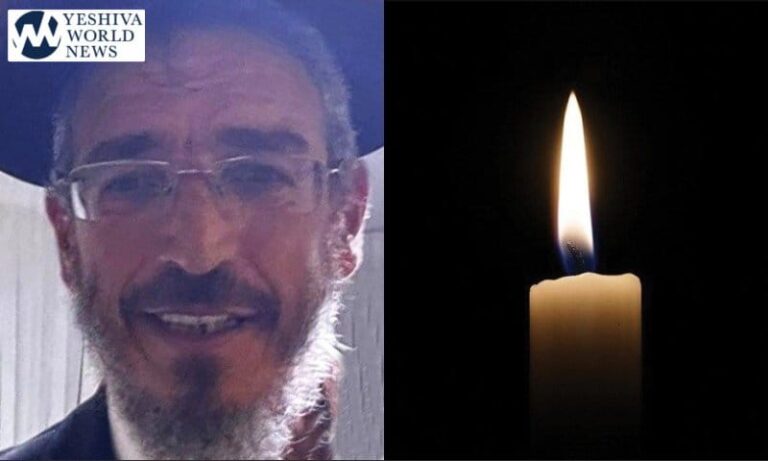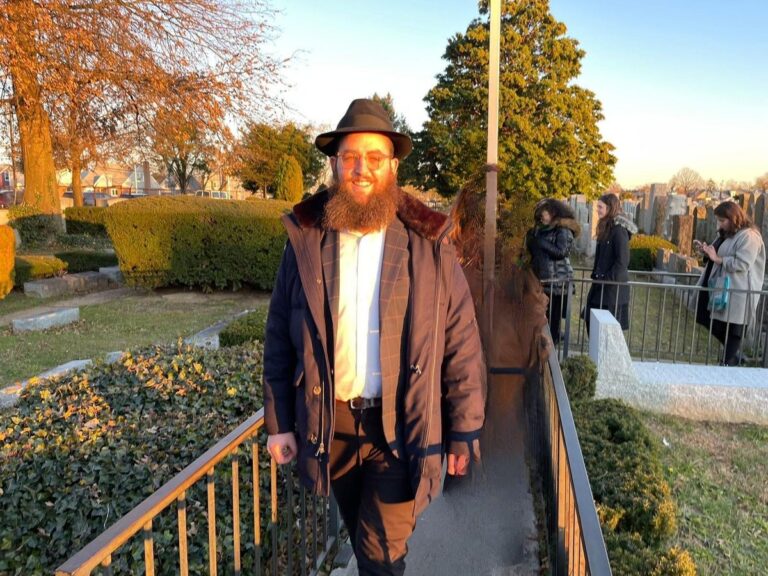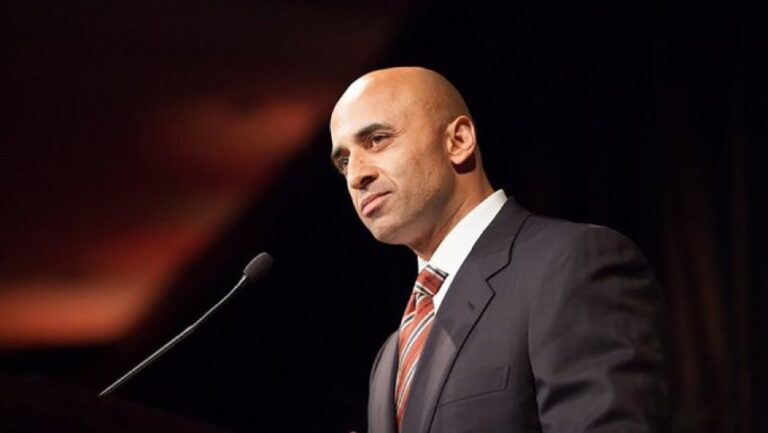Yukach na me’at mayim … v’ekcha pas lechem v’sa’adu lib’chem (18:4-5)
Avrohom excelled in the mitzvah of hosting guests. Three days after he had circumcised himself at the age of 99, Hashem didn’t want Avrohom to burden himself with caring for guests. He brought a heat wave to deter all travelers on that day. Still, the weak Avrohom’s greatest concern was that the unusually hot weather would deny him the merit of welcoming guests. Avrohom decided to sit at the entrance of his tent in the hopes that he might spy a stray traveler.
When Hashem saw Avrohom’s suffering over the lack of guests, He sent three angels in the guise of people. Rejoicing at this improbable turn of events, the elderly and weak Avrohom ran to personally invite them to his home to serve them. Avrohom proceeded to serve them a lavish and abundant feast with one exception: although he was generous with all of the other courses, he instructed that only a small amount of water be brought for them. As caring for guests was Avrohom’s raison d’?tre and he was so generous with all of the other portions, why was he so stingy when it came to the water?
The following story will help us answer this question. On one of his travels, Rav Yisroel Salanter spent Shabbos in a small village. The locals were excited about the opportunity to host the renowned Rabbi in their community and to learn from his pious ways. When the time came to wash his hands prior to the meal, his hosts were surprised to notice that he used a very small amount of water.
Worried that they had done something wrong or offended the Rav in some way, they respectfully asked for an explanation of his behavior. Rav Yisroel explained that the water in this village was drawn from a distant well. Carrying the water over this long distance was a very difficult task. Although he was normally accustomed to washing his hands with more water in the legally preferable manner, in this case it would be inappropriate to do so at the expense of the water-carrier.
In light of this story, the Darkei Mussar explains that almost all of the preparations for the meal were performed by Avrohom. The actions which he did on behalf of the guests were done with great alacrity and revealed a giving spirit. The water, on the other hand, was the one item which Avrohom asked somebody else to bring. As much as he wanted to offer the guests generous portions, he understood, as did Rav Yisroel, that it would be inappropriate to do so at someone else’s expense.
The commandments are traditionally divided into two categories: those between man and Hashem, and those between man and his fellow man. As piety is often associated with the mitzvos in the first group, it is sadly all too easy and natural for somebody wishing to demonstrate his religious devotion to emphasize this type at the expense of the commandments governing our interpersonal relationships. In reality, our forefather Avrohom teaches us that true piety requires recognizing that both classes emanate equally from Hashem and must be balanced accordingly.
Vayomer Hashem el Avrohom lamah zeh tzachaka Sorah leimor ha’af umnam eileid va’ani zakanti (18:13)
Upon hearing the blessing of the angels that she would merit to give birth to a child one year later, Sorah laughed in wondrous disbelief and questioned how she and her elderly husband could possibly conceive a child. Hashem responded by challenging Avrohom regarding Sorah’s lack of belief in His ability to perform miracles. Why did Hashem question Avrohom regarding his wife’s behavior instead of rebuking Sorah directly?
When Rav Chaim Soloveitchik was a young boy, his father (the Beis HaLevi) hired for him a private teacher to allow him to diligently progress in his Torah learning. The tutor quickly recognized the genius of his student and was eager to show off the young prodigy. As the teacher was a chossid of the Slonimer Rebbe, he decided to take his prot?g? to visit his Rebbe.
After they entered and were seated, the Slonimer Rebbe gave an apple to the young Chaim, who proceeded to take a voracious bite without first making a blessing. The Rebbe voiced his disapproval to his chossid, noting that if he were a better teacher, his student would understand the importance of reciting a blessing before eating. The young Chaim rejoined by passing the buck one step higher and impudently suggesting that if the Rebbe were on a higher level, his chassidim would be better teachers, who in turn would have better students!
The Darkei Mussar similarly suggests that Hashem understood that Sorah’s knowledge and beliefs were learned from Avrohom. If she demonstrated a deficiency in her emunah and bitachon (faith and trust), she must have subconsciously picked it up through observing Avrohom. It was for this reason that Hashem transferred the ultimate blame to Avrohom and approached him to demand an explanation.
Vayashkeim Avrohom ba’boker el ha’makom asher amad sham es p’nei Hashem (19:27)
The Gemora in Berachos (6b) teaches that if a person establishes a fixed place for his prayers, the G-d of Avrohom will assist him, and when he dies, he is mourned as a humble and pious disciple of Avrohom Avinu. What is the link between Avrohom and instituting a set location for prayer? The Torah records that Avrohom woke up in the morning and returned to the place where he had stood before Hashem. The Gemora interprets “standing” as a reference to prayer; in other words, the verse is emphasizing that Avrohom came to pray in the same place that he had prayed previously. Nevertheless, the deeper intention of this statement of the Gemora seems difficult to understand. What is the connection between humility and establishing a fixed place for prayer?
The Mishnah in Avos (5:22) teaches that a person who possesses three traits – a good eye, a humble spirit, and a meek soul – is classified as one of the students of Avrohom Avinu, while those who have three opposite qualities – an evil eye, an arrogant spirit, and a greedy soul – are considered disciples of the wicked Bilaam.
In Parshas Balak, Balak took Bilaam to a location from which they could see part of the Jewish encampment, and they prepared seven altars and seven bulls and seven rams to be offered upon them in an attempt to receive Divine permission to curse the Jewish people (Bamidbar 22:41-23:3). When their efforts were unsuccessful, they proceeded to a new location with the hope that their quest to curse the Jewish people would succeed there (23:13). When Hashem once again denied Bilaam permission to curse the Jews in this new place, they traveled to a third location, hoping that now it would be proper in Hashem’s eyes to allow Bilaam to utter his curses (23:27). Each time, Bilaam and Balak attributed their lack of success not to themselves and their wicked ways, but rather to the location, thereby relieving themselves of any guilt or responsibility for the undesirable outcome.
This stands in direct contrast to the conduct of Avrohom, who stood in intense prayer beseeching Hashem on behalf of the inhabitants of Sodom and Gomorrah and negotiating the number of righteous people who would be required to save them from destruction, only to see his efforts for naught, as Hashem proceeded to obliterate Sodom and Gomorrah and their inhabitants, sparing only Lot and his family. Nevertheless, after seeing that his prayers were ineffective, the Torah stresses that Avrohom proceeded the following morning to return to the exact place where he had unsuccessfully prayed the day before. In his humility, Avrohom did not attempt to come up with excuses and scapegoats for the inefficacy of his prayers, but rather blamed himself for not praying with enough intensity, and there was therefore no reason for him to choose a new place as Bilaam did.
Similarly, many people today attempt to justify their lack of kavana (concentration) in prayer by blaming it on peripheral causes, such as the conduct of people sitting nearby, the discomfort of the seat, or other distracting factors. As a result, they constantly switch seats in pursuit of the perfect spot, where they will finally be able to pray without being interrupted or disturbed. However, this is the approach of Bilaam, as the Gemora teaches that the humble students and descendants of Avrohom understand that “the buck stops here” and establish a fixed place for their prayers. In that merit, they should enjoy the reward promised by the Mishnah to Avrohom’s students: enjoying the fruits of their good deeds in this world and inheriting the World to Come.
Answers to the weekly Points to Ponder are now available!
To receive the full version with answers email the author at [email protected].
Parsha Points to Ponder (and sources which discuss them):
1) Because she violated she commandment not to look back at the destruction of Sodom, Lot’s wife turned into a pillar of salt (19:26). Did she first die and then become a pillar of salt, or did the transformation occur while she was still alive? (Shu”t Igros Moshe Yoreh Deah Vol. 1 230:8)
2) After Avrohom sent Hagar and Yishmael away with bread and a flask of water, the Torah records (21:14) that they became lost in the desert. Rashi writes that Hagar didn’t merely stray from the physical path through the desert, but now that she was away from his influence, she immediately abandoned his teachings and reverted to the idolatrous beliefs she had learned from her father. As the Torah only states that Hagar lost her way in the desert, from where did Rashi derive this additional fact, which seems to have no textual basis? (Lev Shalom)
3) Did Avrohom sleep the night before setting out with Yitzchok for the Akeidah (22:3)? (Har Tzvi, Nesivos Rabboseinu, Ayeles HaShachar 20:8)
© 2013 by Oizer Alport.










